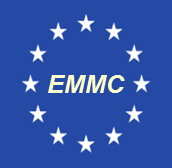EMMC Workshop
EMMC-Workshop within E-MRS Fall Meeting 2017
Title: “Integration of modelling in business decision: Approaches, Models and Licenses”
Date: September 18th, 2017
The main focus of the Workshop is to find strategies for successful integration of materials modelling into industrial decision making based on efficient translation. The application of different models for complex solution of the problems for different business applications will be demonstrate during the workshop. The Workshop brings together software owners and academic model developers, and shows the importance respectively benefits of material modelling for industrial innovation.
Material modelling plays a key role for the development of new materials and products. This is a response to the societal needs, challenges and for ensuring competitiveness of European market. The use of modelling for business decision is cost-effective and it helps to reduce the numbers of tests and experiments.
Obstacles of integration of different approaches and related material models into value chains will be discussed and analysed by means of some examples from experienced software owners and academic model creators.
The goal of the Workshop is to understand the role of so-called translators. Translation has strong emphasis within the EMMC activities. Required Translators are multi-talent people (so-called “solution architect” or “project driver”) who understand, analyze and perform modelling solutions for industrial problems. They are primary players at the interface between industrial end-users on the one hand and software owners / model creators on the other hand. Translators support the usage of materials modelling in industrial R&D to the same level as experiments are used today.
The workshop has the additional goal to boost networking of European and International stakeholders and to provide a communication platform across different communities.
The second focus of the workshop belongs to education. The software owners and model developers will present their strategies for implementation of modelling into industrial problems as well as models capabilities for the specific (focused) industrial cases. Aspects of licensing for different stakeholders will be explained.
| Chair: | Dr. Natalia Konchakova (Helmholtz-Zentrum Geesthacht, GERMANY) | |
| natalia.konchakova@hzg.de | ||
| Co-Organizer: | Dr. Denka Hristova-Bogaerds(Dutch Polymer Institute, NETHERLANDS) | |
| Dr. Daniel Höche (Helmholtz-Zentrum Geesthacht, GERMANY) | ||
| Prof. Dr. Pietro Asinari (Politecnico di Torino, ITALY) | ||
 |
European Materials Modelling Council| https://emmc.info | EMMC-CSA EU project, Grant Agreement No. 723867 |
Agenda:
| 9:00-9:30 |
Welcome and presentation of EMMC translation /training activity |
|
| by Natalia Konchakova (Helmholtz-Zentrum Geesthacht, GERMANY) | ||
| 9:30 - 10:15 | Unit 1 - Advanced composite materials/ nanocomposites for industrial use: modelling challenges and translation experience | |
| Impulse presentation #1 by Ronan Le Goff (IPC, FRANCE) | ||
| Impulse presentation #2 by Roger Assaker (e-Xstream engineering, LUXEMBOURG) | ||
| 10:15-10:30 | Coffee Break | |
| 10:30-11:10 | Unit 2 - Materials modelling for electronic devices / sensors: successful translation expertise and modelling aspects | |
| Impulse presentation #1 by Tomasz Krupicz (Comsol Multiphysics, GERMANY) | ||
| Impulse presentation #2 by Tobias Neumann (Nanomatch GmbH, GERMANY) | ||
| 11:10-11:15 | Break | |
| 11:15-12:00 | Unit 3 - Effective translation strategy and materials model creation for Energy & Funktional Materials | |
| Impulse presentation #1 by Thierry Deutsch (Laboratoire de Simulation Atomistique, CEA, Grenoble, FRANCE) | ||
| Impulse presentation #2 by Daniel Stradi (QuantmWise A/S, DENMARK) | ||
| 12:00-12:30 | Conclusion (morning session) and discussion | |
| 12:30 -14:00 | Lunch Break | |
| 14:00-14:30 | Unit 4 - Hydrides for Energy Storage: modelling approaches and translation realization | |
| Impulse presentation by Marcello Baricco (University of Turin, ITALY) | ||
| 14:30-15:00 | Conclusion and discussion | |
| 15:00-15:15 | Coffee Break | |
| 15:15-open-end | Tutorial / Training -> test use of models and discussion the capabilities of models for the specific (focused) industrial cases, licenses for academics and industry. |
